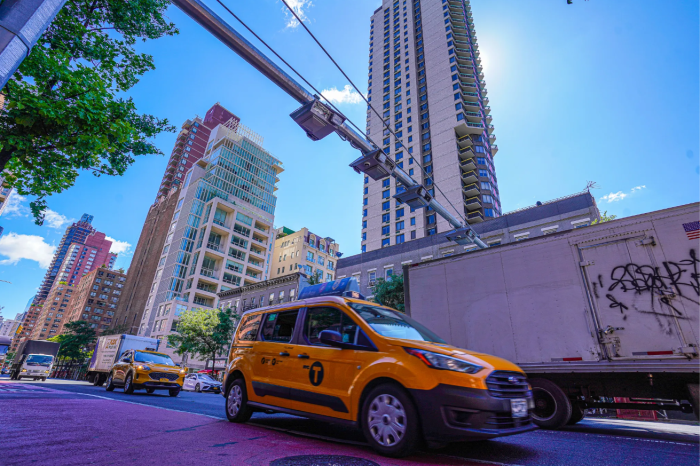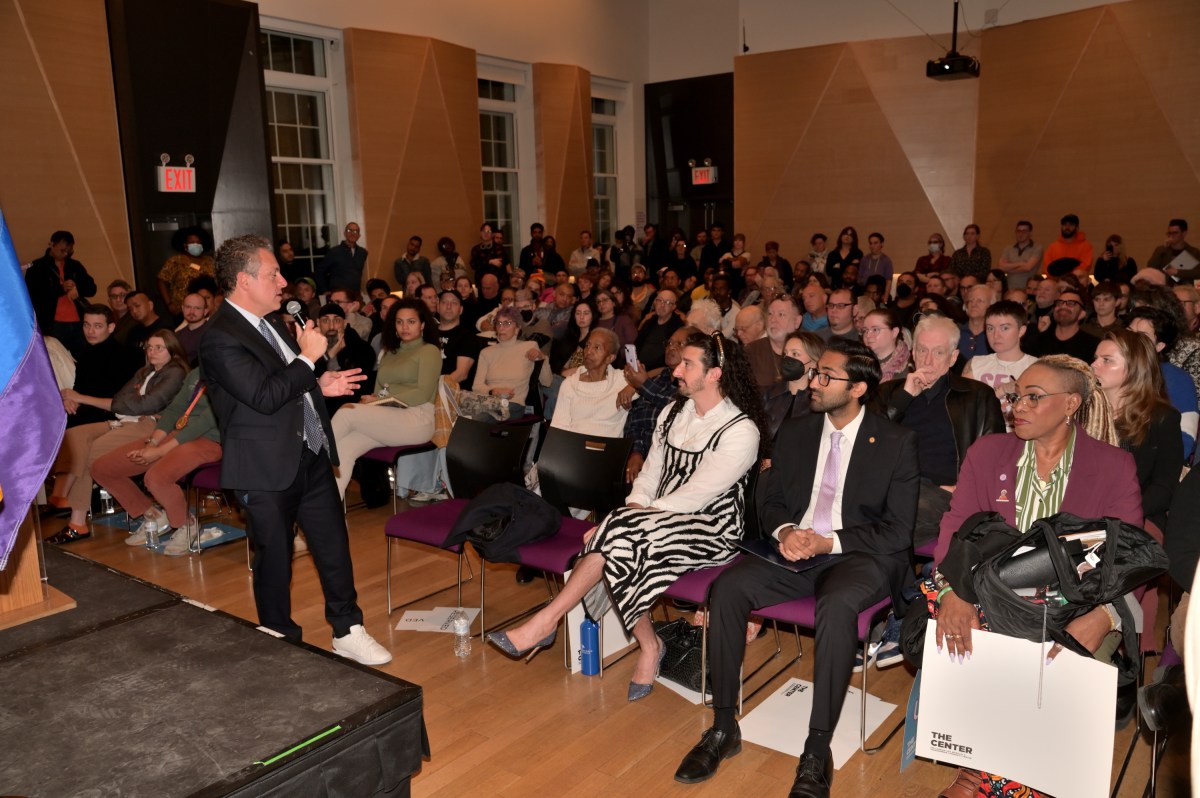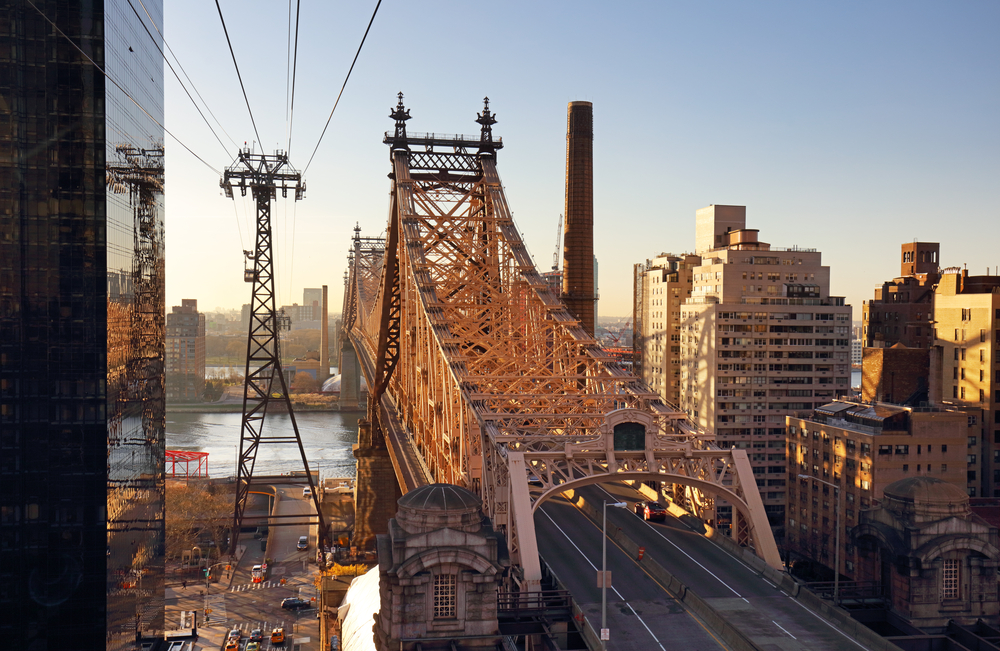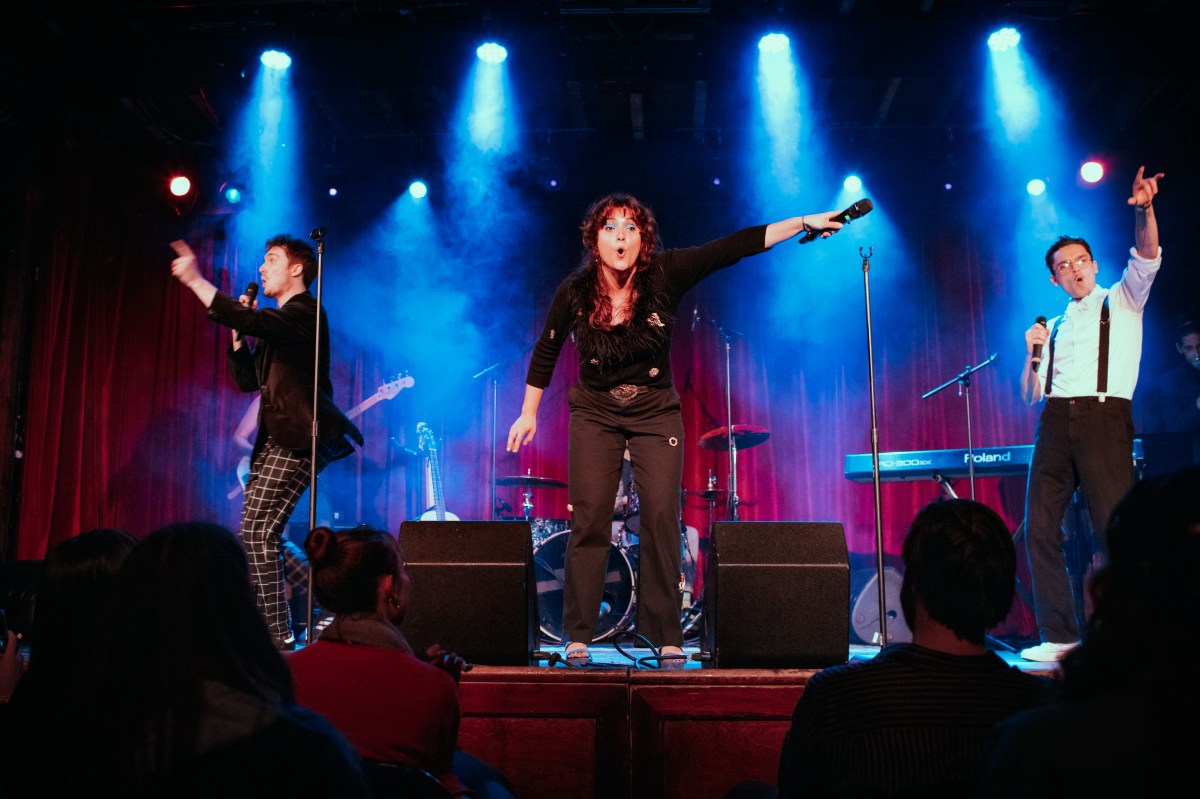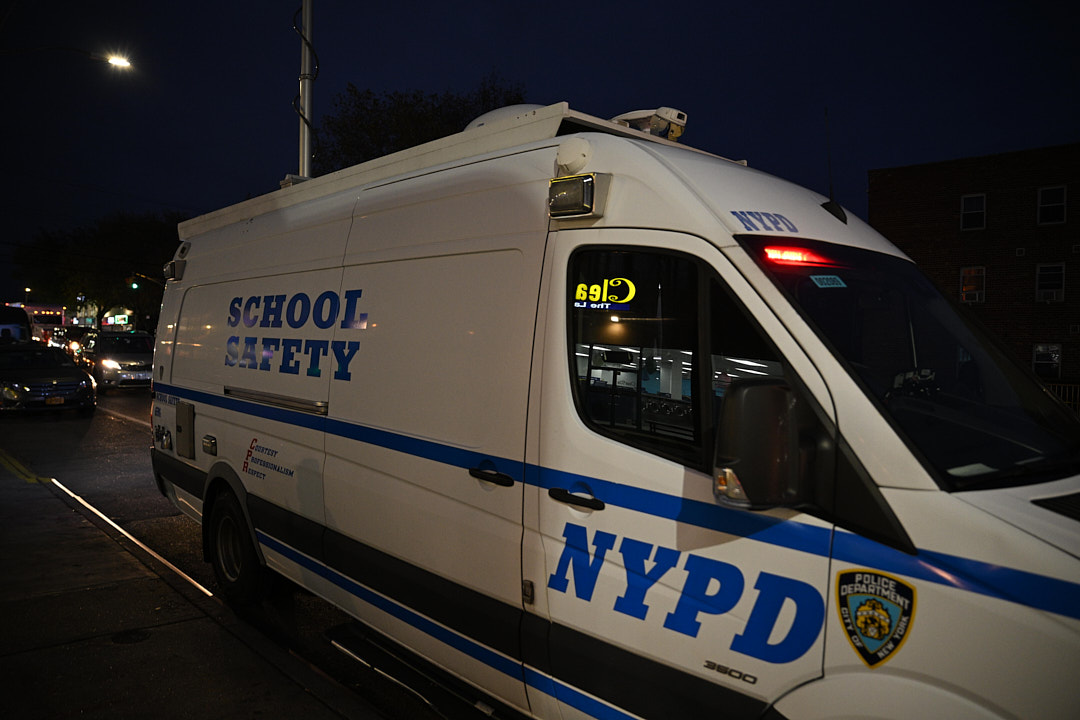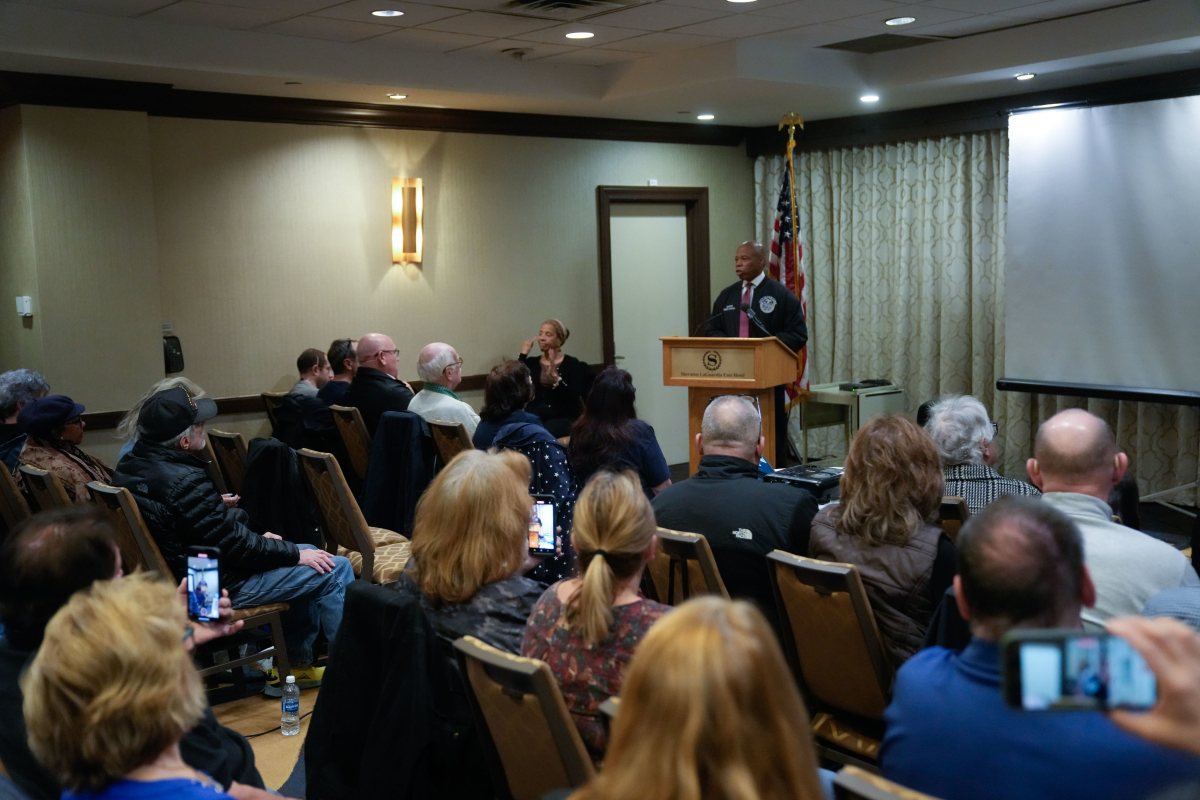
Mayor Bill de Blasio’s policing of electric bicycles flies in the face of his progressive agenda, advocates are charging.
More than 100 e-bike riders rallied on the steps of City Hall Monday morning to call for the mayor to pump the brakes on his ordered NYPD crackdown against the illegal bicycles, which are often used by immigrant delivery workers to endure long shifts for little pay. The riders want the mayor to instead collaborate with them on improving safety.
“It is clear that the city’s crackdown on e-bikes is anti-immigrant, anti-worker and anti-safe-streets,” said Do Lee, of the advocacy group Biking Public Project, which organized the rally with the Asian American Federation. “Many delivery workers need e-bikes because of the fiscal demands of the work which often peaks during bad winter conditions. They need e-bikes because many of them are elderly, in their 50s or 60s. They need e-bikes because many of them suffer injuries from car crashes, or from robberies or assaults.”
Electric bicycles look nearly identical to standard bicycles — though they’re equipped with a small electric motor as well as a battery pack that’s usually attached to the bike frame. While police have long ticketed and confiscated cyclists for using the bikes on city streets, de Blasio announced this fall that his administration would launch a focused enforcement crackdown against their use beginning Jan. 1.
The crackdown would focus on the restaurants hiring e-bike riders, with $100 civil summonses issued to the employer for a first offense, and $200 for each subsequent offense. Cyclists, however, could still be subject to a fine of up to $500 and a confiscation of their bikes.
“Electric bikes are illegal to operate on city streets and those at the top of the food chain need to be held accountable,” said mayoral spokesman Austin Finan in a statement. “Instead of merely targeting riders, we’re going after businesses that look the other way and leave their workers to shoulder the fine.”
But advocates believe any attempt to crackdown on the bikes is an attack on immigrant New Yorkers who are working in an exploitative industry. They question whether the bikes are as unsafe as the mayor claims. The NYPD has no data on how many collisions or fatalities have been caused by e-bikes, leading some to believe that the mayor is putting constituent complaints over the livelihoods of others.
Qiang Li, a Manhattan delivery worker who uses an e-bike, said he works six days a week, twelve hours a day, in order to make a living and support his family. Each day he delivers 50 to 60 orders, riding about 60 miles. Li said he makes about three dollars an hour before tips and sends money to his paralyzed mother in China.
“I cannot rest no matter how bad the weather is or how many hills [there are],” Li said, through a translator, estimating that about 80 percent of his colleagues would lose their jobs without e-bikes. “Electric bikes are our tools of survival.”
Li and others at the rally said they generally receive several tickets a month for operating e-bikes. And each ticket requires a court date and a day off work. Some months, almost all of workers’ wages go toward paying tickets, according to De Quan Lu, who has been organizing meet-ups with riders to discuss issues with policing.
The city has issued millions of dollars in summonses to e-bike riders while also confiscating millions of dollars’ worth of bicycles, according to data from the Biking Public Project. Police have seized 994 bikes and issued a total of 1,721 summonses to riders this year — about half of those summonses, 829, were for moving violations.
The issue of e-bikes stems from murky laws. The federal government permits the sale of throttle-equipped electric bicycles but local laws ban them from being ridden on city streets. One form of e-bikes, a pedal-powered design known as pedal-assist, is legal to ride but offer significantly less power.
Other cities around the world and states such as Massachusetts and California have passed laws to legalize low-speed electric bikes as a means to support green transit and improve cycling accessibility among older populations or for people with disabilities. In New York, legislation to do the same here has languished in Albany.
“I would say the general obstacle to a bill passing in Albany in both chambers of the same year is just ineptitude and the gridlock of legislation,” said Marco Conner, the legislative director of Transportation Alternatives. “There is political will to some extent, but it needs to be marshalled through and I don’t think anyone has given it priority.”




